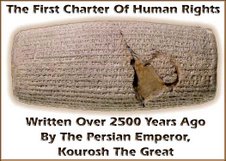Tuesday, May 30, 2006
Pedophiles to launch political party
This summary is not available. Please
click here to view the post.
Thursday, May 25, 2006
Muhammad with a bomb

Prophetic fallacy
Guardian Unlimited Thursday February 2, 2006 Comment Agnès Callamard
The fact that a cartoon depicting the prophet Muhammad with a bomb on his turban is offensive to many Muslims should not be used as an argument for restricting freedom of expression, writes Agnès Callamard
In September 2005, a Danish newspaper published 10 cartoons, including one depicting the prophet Muhammad with a bomb on his turban.There were immediate protests within Denmark and the situation has recently escalated to the point where Danish goods are being boycotted, Scandinavian aid workers have been pulled out of Gaza and ambassadors have been recalled.One striking feature of these events is the remarkable absence of sensible dialogue. Instead, there have been a series of accusations and counter-accusations, variously defending the absolute right to free speech and calling for apologies and censorship in the name of religion.The right to freedom of opinion and expression is a fundamental right that safeguards the exercise of all other rights and is a critical underpinning of democracy.As international human rights courts have stressed, it is applicable not only to "information" or "ideas" that are favourably received but also to those that offend, shock or disturb.Article 19's analysis of this case is that, in the absence of a specific intention to promote hatred, criminal or other censorship measures against the newspaper would not be legitimate.We recognise that the cartoons were offensive to many Muslims, but offence and blasphemy should not be threshold standards for curtailing freedom of expression.Blasphemy laws protect beliefs as opposed to people. Restrictions on freedom of expression which privilege certain ideas cannot be justified. At the same time, international human rights law does protect the right of everyone to hold beliefs, and to be free of violence or discrimination.These events, however, raise broader issues of free speech and human rights that have so far not been addressed sufficiently. Societies throughout the world have failed to address discrimination against religious minorities.Western societies risk a serious escalation of intolerance and discrimination against Muslims while unequal treatment of religious minorities in many other societies, including in the Middle East, is well documented.Governments and a range of other actors have a very important role to play in addressing and preventing discrimination and violence, and protecting the right to equality.Legal restrictions on speech can at best form a small part of the response to intolerance. The putting into place of a range of positive measures to promote equality and combat intolerance and prejudice must also be part of the strategy.Responsible media, for example, have a social and moral obligation to combat intolerance and to ensure open public debate about matters of public concern.In this case, serious and informed debate about the issues raised by the cartoons, involving a multiplicity of voices, both religious and secular, would have been helpful.This responsibility rests with media in all countries affected by these events. Governments also have a key role to play in ensuring that sensible, solution-oriented perspectives are put forward.Instead, the "dialogue" has far too frequently been characterised by inflammatory headlines, political speeches and other measures to escalate tensions and highlight divisions.Indeed, the war of words and acts is reminiscent of global reactions to the US-led war on Iraq or Iran's nuclear programme. Reading the headlines, one could be forgiven for thinking that Samuel Huntington's clash of civilisation is upon us.Twelve Danish journalists came to London two weeks ago to discuss the cartoons with Article 19 and other NGOs. Our discussions then reflected our concerns of the dangers that a deterioration of the situation would pose, as well as possible means of avoiding such dangers.Unfortunately, the set of events that has unfolded since then has validated our concerns rather than our hopes.Our societies need to find more sensible ways to address situations like this, which highlight global differences of opinion.Free speech, the involvement of a diversity of voices, well-informed public debates and a responsible media are central to this.
Agnès Callamard is executive director of Article 19, a human rights organisation focusing on the defence and promotion of freedom of expression and freedom of information worldwide.

Subscribe to:
Comments (Atom)
